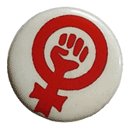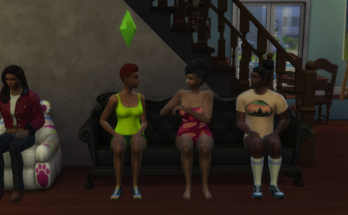By Giselle Fierro
As I sat at Starbucks, I began to think about how my feminist ideals have impacted the person that I have become this semester. Specifically, why I never saw any interest in casting my vote or listening to politics, considering that voicing our feminist ideals and fighting for equality is one of the foundational purposes of feminists’ existence. As I continued to ponder on this subject, I continued to come up with one answer to my question: the role that the lack of resources and knowledge within underprivileged communities plays in instilling political fear and a lack of political interest.
For my Online Feminist Space (OFS) class, taught by Professor Alexandra Juhasz, we were told to participate in a political activism project as a class for the 2012 Presidential Elections. At first, I felt uncomfortable with the idea because I know very little politics and felt I had no right stepping into unknown territory. Leave it to the ones who know their politics, right? After discussing and brainstorming as a class, we decided that we would place a table at Pomona College and have individuals write down the answers to either of the following questions: 1. Why did you vote? 2. Why didn’t you vote? 3. Is it important to vote? Although I was nervous about participating in something I knew little about – and embarrassed to admit – I decided to give political activism a shot for the sake of my different identities/communities.
Today I think back to that day and question why voicing my opinion about political issues was scary and uncomfortable for me. I now understand that a lot of the fear stems from the community I come from, one that many may consider to be underprivileged in many ways, but specifically, in regards to the education I obtained. The Chicago Public School System (CPS) is failing its students, not only in academic ways, but also in personal ways. Considering that I am a first-generation student in the United States, although much of my personal growth I got from my parents, I relied greatly on the education that I obtained for both my academic and personal growth, including in regards to politics. To put it simple, CPS did not push me to voice my opinions; CPS did not push me to be politically active; CPS did not push me to fight for personal empowerment; CPS did not teach me to actively do, but instead to actively listen; and lastly, CPS taught me nothing about the importance of being politically engaged and standing up for who you are and for who you represent. In fact, politics was something that was taboo within the classroom. My education taught me to be quite and accept what is. My education taught me to not challenge the status quo. For this reason, many individuals who come from these underprivileged backgrounds, as well as from the CPS system, fear and have little interest in politics, in pushing for fairness and equality, in standing up for who they are.
As a new feminist, and partaking in the OFS political activism event, I came to realize the importance of voicing my opinion. Although I was conditioned to believe that I should take things for what they are, this event and this online feminism class really helped me understand the importance of being an active participator for equality: There is a difference between listening and acting, and participating in this political campaign helped me better understand that. Hearing the many individuals answer why they voted reminded me that I do have a voice and that I should use my voice to protect and push for what is important to me. Although it is only one vote out of hundreds of thousands, that one voice has spoken. That one voice can speak for my many different identities. That one voice can speak for my community. That one voice can speak for my family and friends back home. That one voice can speak and support all the other voices that stand for the same things. My voice can speak.

